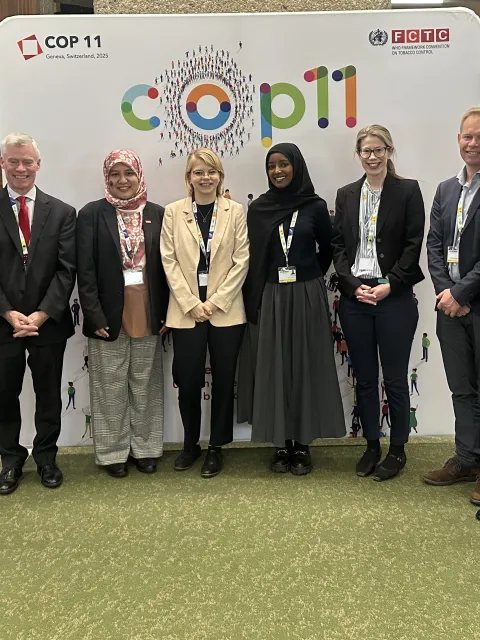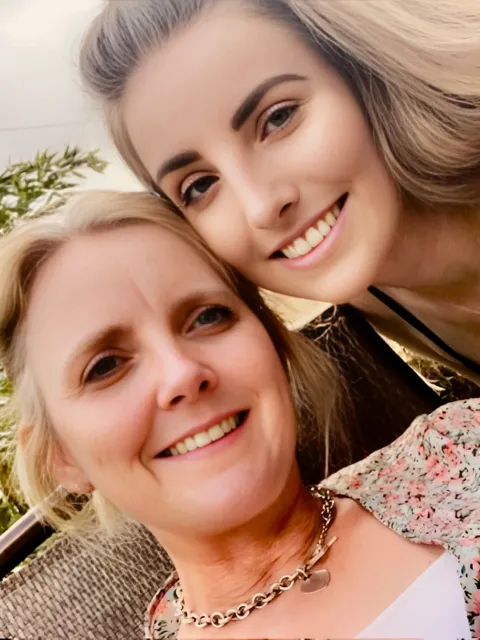UICC publishes an advocacy handbook to support civil society in advancing cervical cancer elimination goals
UICC has released an updated version of its Cervical Cancer Advocacy handbook, as a practical resource to support advocacy for cervical cancer prevention, screening and treatment aligned with the latest recommendations and guidelines to support the WHO Global Strategy.
Cervical cancer remains a major global health challenge, despite being preventable and curable when detected and treated early. The disease claims the life of one woman every two minutes, with nearly 94% of these deaths occurring in low-resource settings. The WHO’s Global Strategy to eliminate cervical cancer outlines three core targets to be achieved by 2030: 90% of girls fully vaccinated with the HPV vaccine by age 15, 70% of women screened with a high-performance test by ages 35 and 45, and 90% of those diagnosed with precancer and invasive cancer receiving appropriate treatment and care.
Responding to WHO’s latest recommendations to support the elimination targets, UICC’s updated Cervical Cancer Advocacy handbook equips CSOs with practical tools and adaptable messaging to shape effective, locally relevant advocacy strategies. Complementing UICC’s broader advocacy toolkit, the handbook emphasises the power of coalitions, bringing together key partners such as medical and family planning associations, youth-led initiatives, the HIV community, and patient groups, to amplify a collective voice and strengthen advocacy efforts.
The handbook helps CSOs assess national progress against the elimination targets and tailor their advocacy angle to context-specific challenges, such as limited access to services, lack of data, underfunded health systems, and low political will. It recommends advocacy strategies aligned with the WHO Global Strategy, including integrating cervical cancer services into broader health programmes, securing sustainable financing, expanding access to care and treatment, particularly for underserved populations, and strengthening national screening, vaccination, and cancer registries.
The handbook showcases successful achievements by UICC members, such as the Organisation for Women's Health and Development (Instancia por la Salud y el Desarrollo de las Mujeres or ISDM) in Guatemala. ISDM notably helped secure funding for HPV testing in 10 departments through a 15% excise tax on alcohol. As a result of their advocacy efforts, the organisation also led the development of the National Cervical Cancer Plan 2023-2030, which includes high-precision screening and recommendations for increased HPV vaccination coverage.
“Civil society plays an essential role in advancing policy change, holding governments accountable, and ensuring the right to health for every person affected by cancer. This handbook is designed to equip advocates with the tools they need to act with confidence and impact when addressing cervical cancer within their countries.”
– Rosanne Lamplough, Senior Manager, Capacity Building, UICC – leading UICC’s Cancer Advocates programme.
The Cancer Coalition Philippines, spotlighted in the handbook, has achieved major policy wins, including increased public funding, expanded screening and treatment coverage through the national health insurance scheme, and the launch of a nationwide cervical cancer screening programme by the Ministry of Health, backed by USD 1.5 million in funding.
In Malawi, a country with the second highest mortality rate linked to cervical cancer globally, the Women’s Coalition Against Cancer (WOCACA) played a key role in improving access to the HPV vaccine. The UICC member organisation leveraged its grassroots network and health advocacy expertise to take part in policy dialogues, support HPV vaccination planning, and address barriers to vaccine uptake through community mobilisation and awareness programmes. The handbook concludes with an illustrative example of evidence-based advocacy messaging by the Cancer Society of New Zealand and a ten-point advocacy action plan. In this sense, the UICC Cervical Cancer Advocacy handbook is not only a resource for organisations working to support WHO’s elimination goals, but together with UICC’s advocacy toolkit, these resources also serve as a model of effective advocacy for organisations seeking to influence health policy, mobilise communities and improve equitable access to care.
The handbook will soon be available in French and Spanish.

Continue the conversation on UICC Connect
Last update
Wednesday 07 May 2025
